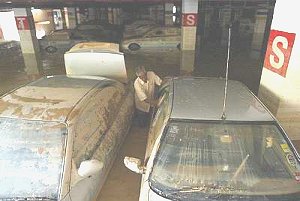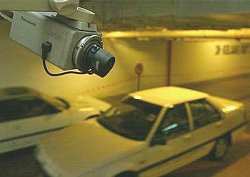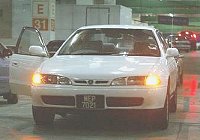Parking and security
The Star 27/12/2004 By S. S. YOGA
MANY would have heard stories of
scary things happening in car parks. While some may be urban
legends, others unfortunately are true accounts. In fact, the issue
of security and liability of car park operators has come under much
scrutiny following the Canny Ong murder case.
Surely it is not unreasonable to
expect a certain measure of security after having to dip into one’s
pocket to pay for the parking.
Car park owners and operators are
quick to point to the “park at your own risk” disclaimer – what the
legal fraternity calls the “exclusion clause”. But is that good
enough to absolve them of all responsibility?
Lawyer Sivarasa Rasiah says that
disclaimers and exclusions can be raised as a complete defence if
the clause is clear and sufficient (as in the driver sees and
understands them) but such clauses do not exclude liability under
negligence. He adds that there were two cases in 1995 in which the
court ruled that exclusion clauses do not exclude the defendant from
the burden of proving the damage was not due to their negligence and
misconduct, and that they had exercised due diligence and care.
“The liability is based on the duty
owed by car park operators to ensure that cars parked at their
parking facility are not damaged or stolen,” explains Sivarasa,
emphasising that this does not absolve liability on the part of the
car park owner if the liability could have been foreseen.
 |
|
When floods damage cars
parked at a car park, who bears liability?
|
He also clarifies that for car parks
that are part of the privileges given to the owner of any private
residence complex, the same duty to those who park should prevail.
In addition, the liability of the management company of the
residence can be coupled with breach of contract as the parties
concerned had entered into an agreement that touches on the safety
of the property and that includes their vehicles.
For instance, it was reported in
August last year that the Consumer Claims Tribunal held that
condominium managements and appointed security companies were
responsible for the security of the units, their owners and
vehicles, and cannot hide behind exclusion clauses or notices which
state “Park at your own risk”. The tribunal’s deputy chairman said
such disclaimers were unfair to condominium owners as they had paid
their maintenance charges; and proper and effective security
measures should be in place to protect the property of the owners –
their units first, and then their vehicles.
A lawyer who wishes to remain
anonymous says that if someone is not happy with the exclusion
clauses at a car park, they should park elsewhere. Sivarasa takes
umbrage at this.
“The lawyer is wrong in saying so
because exclusion clauses do not exclude liability on the part of
car park operators. Often such clauses are drafted in wide and
ambiguous language and the public often fail to understand the
effect and meaning. It is a matter for the court to decide as such
clauses only come into effect after damage occurs.”
He says that if this is reason to
find other car parks, it limits the choices and puts the driver in a
more vulnerable position as he would have to use unauthorised car
park facilities.
That is why it has to be the
judiciary that interprets the law, for instance, with respect to the
suits taken by lawyers for damages suffered after the underground
car park in Dataran Merdeka, Kuala Lumpur, was flooded in June last
year, says lawyer Edmund Bon.
 |
|
If the installation of
closed-circuit televisions in car parks becomes
mandatory, it may have financial implications such as
increased parking rates which may be passed down to
patrons.
|
Then there are also establishments
like restaurants and clubs that provide valet service for parking.
What are their liabilities, if any?
This is a matter of bailment which is
a contract between the bailor – in this case the driver/owner of the
vehicle who has entrusted property (the car) to another person – and
the bailee (the valet), says Sivarasa. The purpose of such
arrangement is to keep the property in safe custody or to do
something with such property, the bailor paying the bailee for the
service. So the valet implicitly agrees to exercise due care and
diligence in keeping the vehicle and to return it to the
driver/owner.
Failure to do so is, of course,
negligence; Sivarasa points out that bailment is provided for in
Part IX of the Contracts Act 1950.
When contacted, Malaysian Parking
Management Association president Francis Ng says that in legal cases
involving floods, thefts, break-ins and damage to vehicles,
operators normally refer to their respective insurance companies.
“We take up a Public Liability
Insurance policy for RM1mil to protect us from such claims. There
were cases in which the insurance company paid for damaged
windscreens and other claims. Our role has always been to assist
patrons and we have in many cases given a helping hand in making
police reports and followed up on their claims,” says Ng.
Legal action aside, are there ways to
give more protection to vehicle owners? Sivarasa thinks by-laws on
car parks and building regulations need to be improved to provide
more stringent safeguards. This, he feels, should include proper
facilities and maintenance so that car park operators can maintain a
high standard of security.
In July last year, Housing and Local
Government Minister Datuk Seri Ong Ka Ting said his ministry was
studying if the “park at your own risk” concept should be banned. He
added that they were looking at such practices in other parts of the
world.
Earlier that month, the Cabinet had
approved the amendments in by-laws to ensure a minimum standard of
security in buildings and car parks, including the construction of
floodgates for underground car parks.
Sivarasa points out that the Domestic
Trade and Consumer Affairs Ministry can regulate parking fees to
prevent any exorbitant increase which is burdensome to the public.
He adds that parking rates should not be an excuse not to take
stringent measures because public safety and security is of
paramount importance.
 |
|
Even though the car alarm
sounds and an attempted break-in occurs, nothing is done
about it. Car park operators should ensure that cars
parked at their parking facility are not damaged or
stolen.
|
Ng says they have held dialogues with
the ministry and other relevant agencies but they have yet to know
the final outcome. However, they were given to understand that there
would be changes in terms of security.
“The changes (installation of
closed-circuit televisions, having guards on patrol, etc) may have
financial implications such as increased parking rates which may be
passed down to patrons,” says Ng.
“At the end of the day, education on
the dos and don’ts in a car park is important in the long term as
drivers have to play their part too in terms of safety and
|